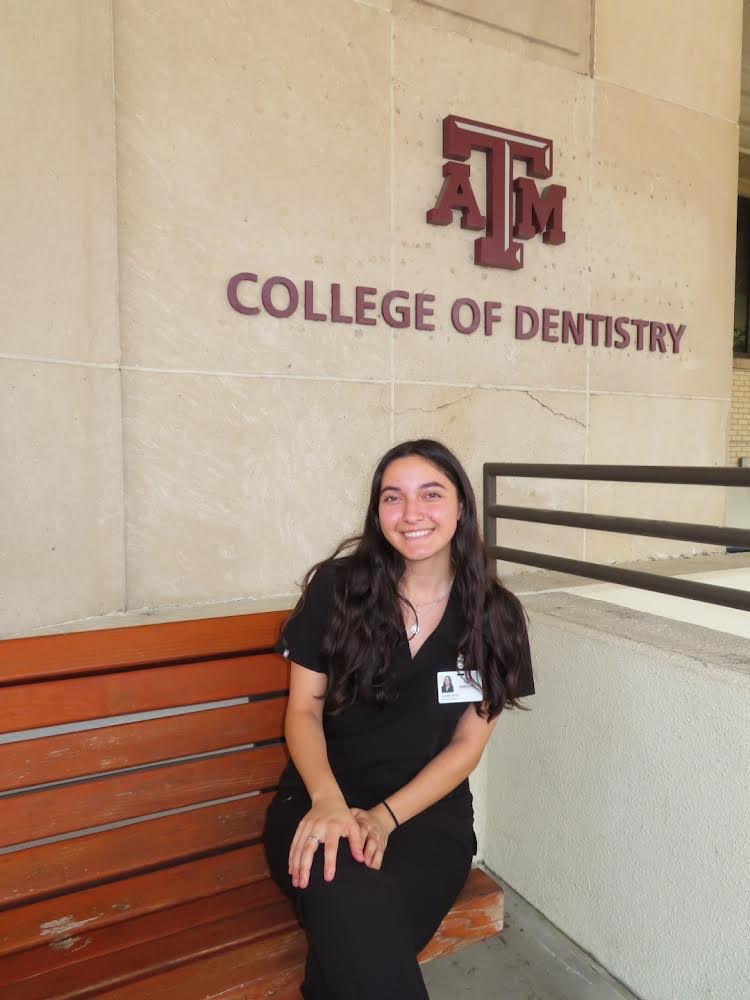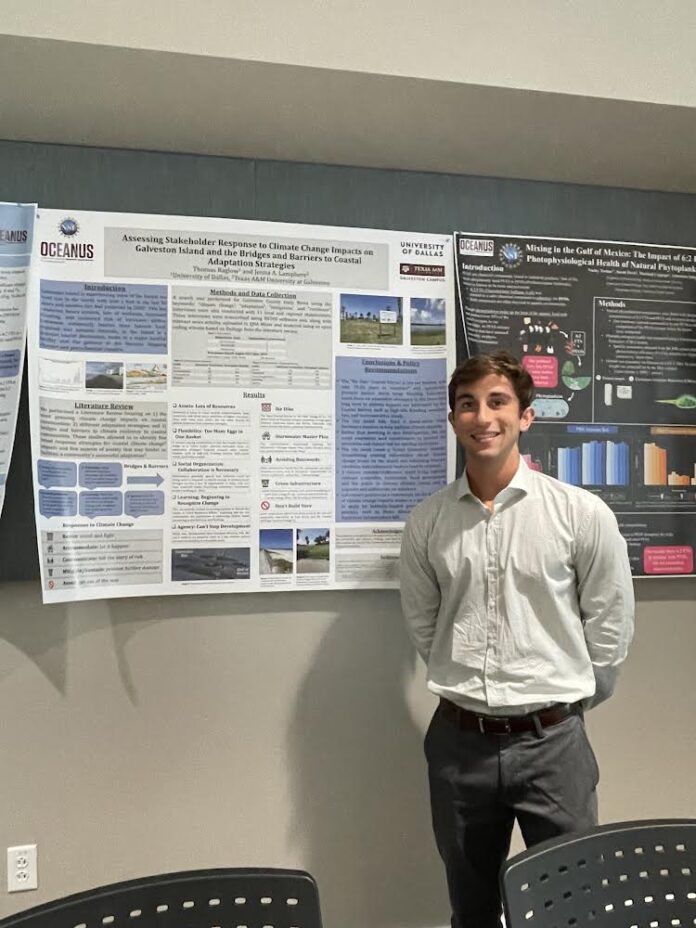Many students struggle to gain hands-on experience in their chosen field before graduating and entering the workforce. Thankfully, the University of Dallas has recognized this issue and helps many students apply for internships or training programs that take place during the summer.
Soccer athletes Thomas Raglow, junior biology major with an environmental science concentration and #12, and Claire Reed, junior biology major and #10, bypassed this lack-of-experience problem by taking advantage of the opportunities that universities offer their students and they recommend that others do the same.
Raglow discovered his summer program during his fall term through his department.
“There’s always some event every year in December where The Student Members of the American Chemical Society talk about how to apply for summer research,” Raglow said. “I was looking at different ones over winter break and I found one [at Texas A&M Galveston].”
Meanwhile, Reed’s discovery for her program took some elbow grease.
“I just looked up a bunch of pre-dental opportunities online and there weren’t that many. I was looking for local ones,” Reed explained. “I wanted something that was more focused on dentistry.”She gradually narrowed her search and discovered the perfect match: a program in Dallas run by Texas A&M University.
The application process for these programs is often simple and eagerly awaits motivated applicants. Raglow had a very direct application progress before his acceptance to the research-focused program. “You just fill out a short essay and answer some questions,” Raglow explained. “They reached out to me in February and I had to do an interview.”
Raglow was accepted and worked in Galveston at the Texas A&M campus. With rising sea levels around the island, Raglow and the other environmental researchers had their work cut out to promote an environmentally safer area for the future.
“We did a document analysis of all the newspaper articles to find patterns and see what isn’t being talked about. Then we conducted interviews with different people in the community,” Raglow said. “We used that [research] to create a list of policy recommendations for the future.”
Meanwhile, Reed’s training program was a six-week intensive simulation consisting of three classes which gave participants a glimpse of what to expect in the first year of dental school. “We had classes from 8am to 5pm, then quizzes and tests on top of that every single Monday with lab exams. Sometimes we had classes on the weekends,” Reed listed. “It was a lot, but it was really, really helpful.”
Both Raglow and Reed enjoyed their time spent in their respective programs. Reed connected with one of the faculty in her training program over their shared love for soccer and a mutual favorite team: Manchester City.
As a piece of advice for his fellow students, Raglow also recommended pursuing research opportunities without fear of inadequacy. “[Doing research] is the best teacher. Obviously, having experience helps, but you have to gain that experience somewhere. Everyone starts from zero,” Raglow encouraged.
Reed emphasized her gratitude to UD and its biology professors, especially in preparing her for the intensity of the program.
“I even emailed all of them. I was like, thank you so much. I literally would not have been able to do this without you,” Reed said. “I know you didn’t do the actual program, but you taught me everything I needed to know in order to be successful, which is why I thank them so much.”

Claire Reed in her scrubs at A&M. Photo courtesy of Claire Reed.
